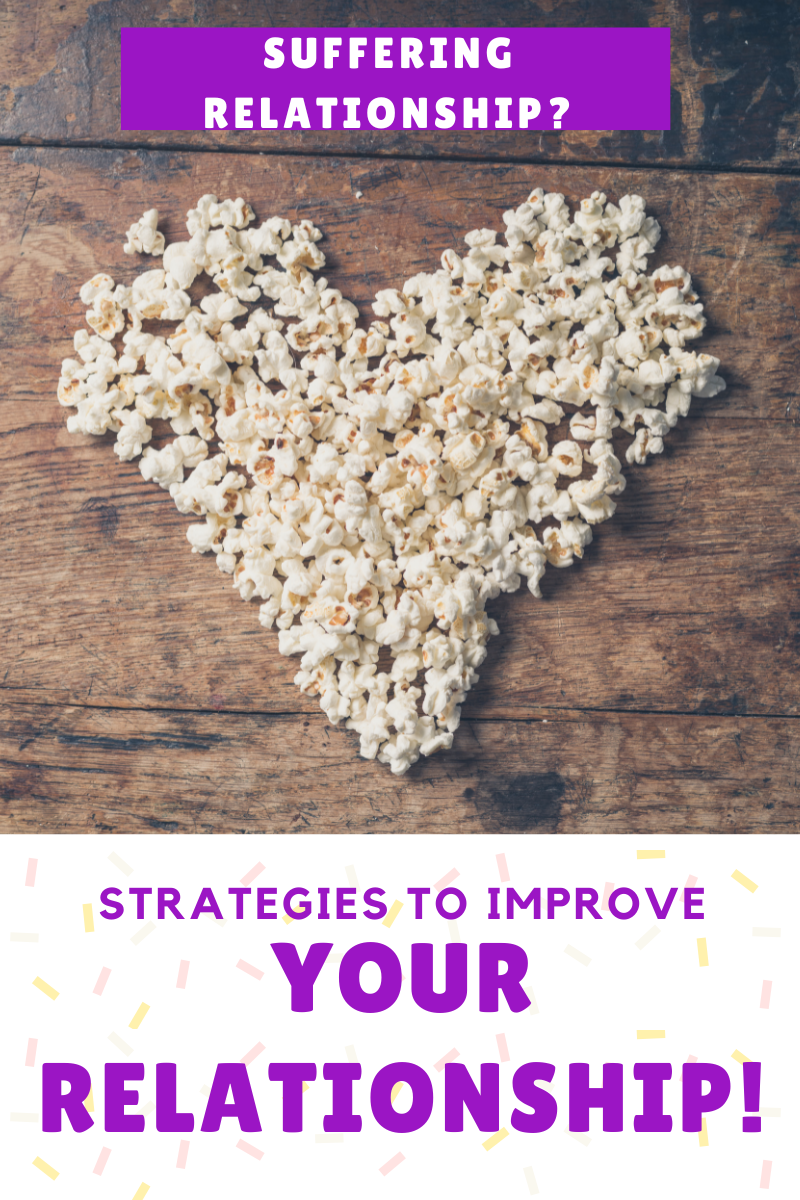People can become so comfortable with their relationship that they become complacent. Of course, you want to be comfortable with your partner and you want to feel certain and sure of the longevity of the relationship, but are you all becoming bored with one another? Are you all caught in a cycle of repeated daily rituals? While having a level of certainty that you and your partner are one another’s sense of peace and you all are able to spend loads of time in one another’s presence, you also want to make sure you all are keeping the fire burning. Adventure, spontaneity and growth are critical to maintaining a truly thriving relationship. Rather than going through the motions of every day’s routine, you want to had a bit of sugar and spice that gives you and your partner something to look forward to and something to talk about with friends and family. You want to strive to continually improve your relationship because it allows you all to grow together as a couple, rather than one person outgrowing the other, which could lead to disconnection and frustration in the relationship. It allows you all to more effectively communicate and manage conflict, when both persons are intentional about consistently making the relationship better. The emotional connection can strengthen because both persons are ensuring they are keeping interest in one another by understanding needs and desires.
According to Jack Dunhill’s article on the Best Strategies to Improve Relationships Identified in New Study (2023), there are some strategies some researchers have agreed are helpful in improving relationships and here is how these strategies can help your relationship:
(A) Try to understand the other partner’s needs and desires.
Understanding your partner’s needs and desires promotes effective communication through transparent and honest conversations. It helps to build trust in your partner, that you value his or her feelings and opinions. Misunderstandings and conflict can be minimized when there is clear understanding of your partner’s needs and wants and ways to reasonably meet those needs.
(B) Discuss problems together and become more open to expressing their worries.
Expressing concerns and discussing problems can help reduce conflict and actually increase the likelihood of resolving conflict when both individuals are open to hearing one another’s concerns and are willing to make a compromise. Being vulnerable with one another can improve the emotional connection and enhances trust in one another; it is a time to support and validate one another, even if you all do not agree on a topic, you can still reach a compromise.
(C) Show more interest in the other partner and spend more time together.
Spending time and showing interest in one another indicates you all have high priority in one another’s lives. This gives reassurance, builds trust and reduces insecurities in the relationship. This creates an opportunity to share experiences, thoughts and dreams. Intimacy can be developed when showing that you value and care about your partner.
(D) Go on more experiences together, including date nights and trips.
Creating memories strengthens a couple’s identity and contributes to a sense of belonging. Positive experiences can reinforce the bond and be a source of joy and other positive emotions to draw upon during challenging times. You all can discover shared interests that can build a sense of companionship and shared goals. New experiences bring variety that can offer excitement and reignite the spark.
(E) Build trust and be more honest and respectful.
Trust is a foundational component to a healthy, long-lasting relationship. It allows for feeling secure and confident in the relationship as well as creating a sense of certainty about a partner’s fidelity. A lack of trust can strain the relationship due to doubts, suspicions and insecurities. Honesty requires being transparent, therefore vulnerabilities will be higher and this increases emotional intimacy and connection. This allows the couple to work through challenges more effectively.
According to the article, there are two strategies that are least effective in improving a relationship and here is why:
(A) Improving your looks.
Focusing on enhancing your looks for the sake of bettering your relationship can do more harm than good because it is like putting a band-aid on a cancerous mole. Using a cover up does not alter the deeper issue. It is likely the relationship is superficial and does not have much emotional substance for a healthy relationship to thrive. Solely focusing on improving looks is an indication of the deeper issue of self-confidence and insecurity with oneself. Looks change, so the relationship can change with the relationship.
(B) Going to self-improvement classes.
Classes for self-improvement can be quite beneficial for the person who is single and wanting to better understand himself or herself in preparation for a healthy relationship. In the context of improving a romantic relationship, self-improvement classes will not provide as much opportunity to really address and tackle the true issues of the relationship. It takes two individuals striving to make a relationship work and if only one person is trying to improve their personal self, there will be minimal effect on the relationship.
The study found more men than women use the strategy of “concessions and compromises.” While there can be some differences among genders regarding the employment of this tactic, research suggests men tend to use a problem-solving orientation whereas women use empathy and emotional connections. Men tend to want to figure out how to keep both individuals happy and implement that strategy immediately. Women tend to want to exercise understanding of how her partner felt, how/why he reached certain conclusions and she wants her partner to understand her own perceptions and what is making her feel a particular emotion. Both strategies are helpful because making the emotional connection allows for reduced conflict and then reaching a resolution. Once a woman feels heard, understood and supported, then she is more likely to work with the man in finding a reasonable resolution.
